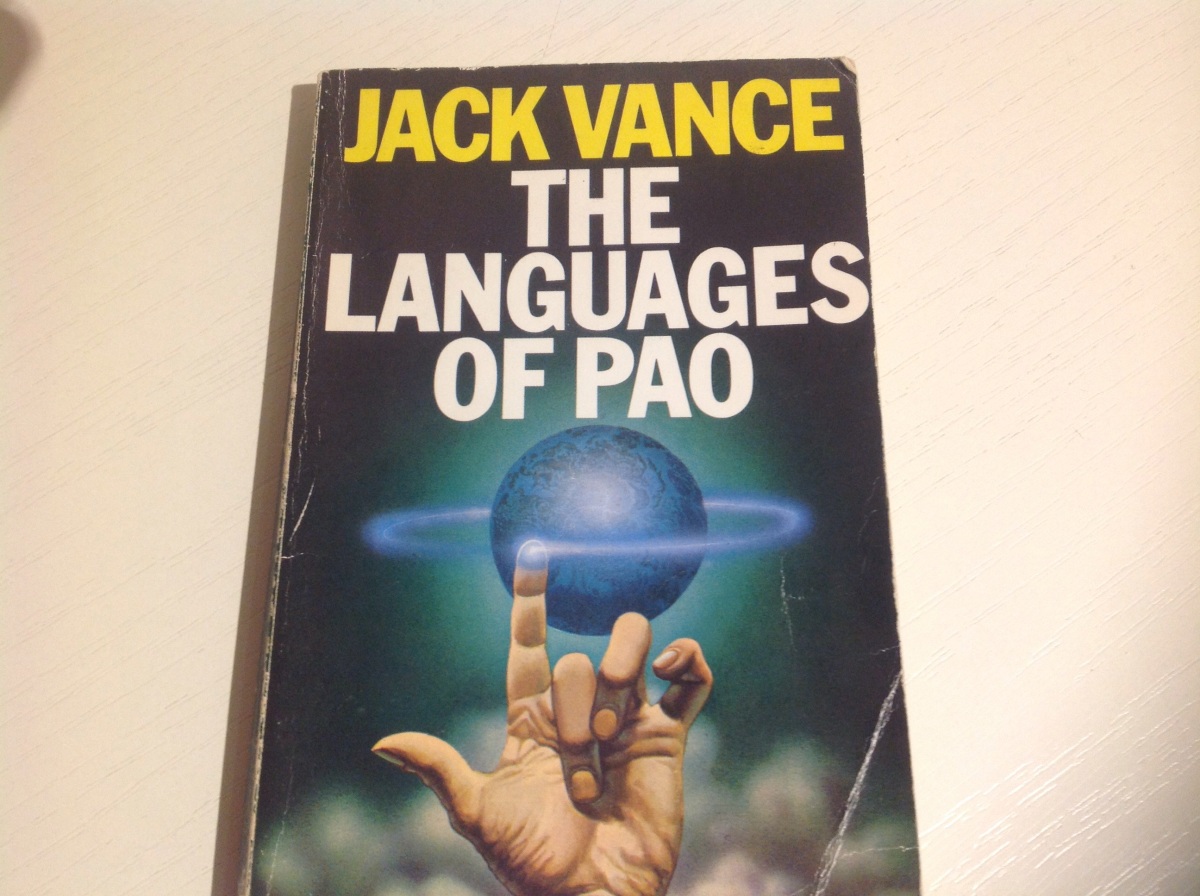I’ve never read anything by Jack Vance before and I didn’t find the title of this book too exciting, but what a good story this turned out to be.
The book is more science-fantasy than straight science-fiction and reminded me a little of Ursula K Le Guin’s books in that there is a richness in the descriptions of socio-political activity, ethnicity and diversity. However, Vance’s story is predominantly about men (of various planets). Indeed, one planet is inhabited solely by men and their sons, women being sent away when they have stopped giving birth to sons.
Rather than being an anachronistic throwback to the casual sexism of the 1950’s, Vance seems to be exploring the logical conclusion of the basic drives of men being taken to their extreme.
The story begins on Pao, home planet to a docile, homogeneous population of 15 billion. The Paonese are not a warlike race and deal with threat and invation by being sullen and difficult, which appears to take the pleasure out of victory for invaders.
The Emperor, or Panarch, of Pao is seemingly assassinated by his brother. The Panarch’s son and heir, Beran, is taken to the planet Breakness by the mysterious and powerful Palafox. Beran’s life is saved but he soon discovers that he is a pawn in a very complex and long political game.
Breakness is the planet populated by men and their sons. Palafox is patriarch of a research institute where every person, except Beran, is his son. On Breakness, the prestige of a man is increased by the number of sons he has. Palafox seeks a kind of immortality by stamping his genes on the future population. Pao is the long-term target of Palafox’s plans. He is a megalomaniac but is powerful enough for his plans to be realistic.
Beran’s uncle realises that he needs Palafox’s help to stop Pao being a galactic whipping-boy. Palafox’s solution is to change the nature of the Paonese gradually by introducing new languages and, therefore, new patterns of though and behaviour. These are the Languages of Pao from the title. Separate languages are created for military, commercial and research purposes.
Jack Vance makes a very interesting point about how the structure of a language can shape thinking, beliefs and action.
Beran grows into a young man on Breakness and trains to be a linguist. He becomes increasingly homesick and concerned by news from home, which indicates that the essence of the Paonese is being lost.
Beran returns to Pao where a reckoning with his uncle and the seemingly omnipotent Palafox await.
This story is gripping and the ideas it propounds are absorbing. It is interesting to consider the influence that language has on thought and action, even if you come to different conclusions to Jack Vance. The writing is of a high quality and will certainly be aiming to read more by Jack Vance in the future. Recommended.




